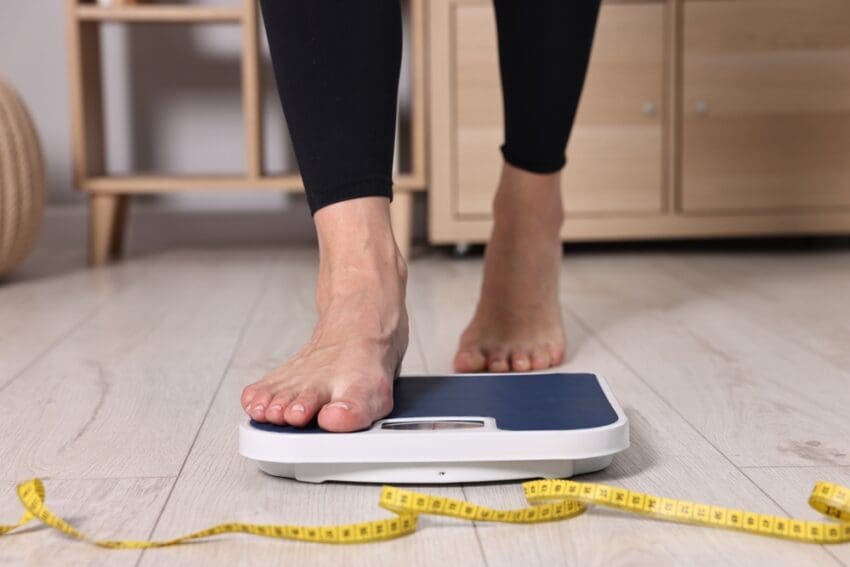
Why Some Weight Won’t Budge: The Hormone Connection
Many Americans have a weight problem. That’s not a statement of opinion but rather a reality substantiated by multiple studies, including one from the Centers for Disease Control and Prevention (CDC).
It revealed that some 74% of Americans aged 20 and older are overweight. In other words, their body weight is higher than what is considered healthy based on their height and age.
Of the roughly 74% of overweight Americans, an estimated 43% are actually obese. Being overweight or obese carries many health risks, some of which include diabetes, heart disease, stroke, and even certain cancers. While a sedentary lifestyle and poor eating habits are the leading contributors to weight gain, they are not the only ones. Hormonal imbalances can also be a factor.
Understanding Hormones and Their Role in Weight Gain
Hormones are chemical messengers secreted by glands in the endocrine system. Once secreted, they enter the bloodstream and travel to organs and tissues throughout the body to help regulate various bodily functions, like mood, growth, metabolism, sexual development, reproduction, and blood pressure. The same applies to the body’s stress response and glucose and electrolyte levels.
A hormonal imbalance can significantly disrupt many of the bodily functions that keep us healthy. For some people, weight gain is one of the many consequences of a hormonal imbalance. That is especially true when it comes to low human growth hormone (HGH) levels.
Human Growth Hormone Deficiency and Body Weight
Human growth hormones are peptide hormones, a class of hormones made of small chains of amino acids, secreted by the pituitary gland and the hypothalamus. During childhood, these hormones play a crucial role in bone and cartilage growth, body composition, and the development of organs and tissues. In adulthood, they are involved in regulating the following:
- Body composition
- Bone health
- Brain function
- Cardiovascular health
- General well-being
- Metabolism
- Muscle repair
Among many other things, an HGH deficiency can trigger weight gain due to its impact on ghrelin, a hunger-stimulating hormone, and leptin, a satiety hormone. That’s according to a study from the National Institutes of Health (NIH). As far as the basis for this occurrence, high ghrelin levels caused by a growth hormone (GH) deficiency can increase feelings of hunger.
Meanwhile, chronically high levels of leptin can lead to leptin resistance, a condition that stops the brain from responding to signals of fullness or satiety sent from leptin hormones. The combination of high ghrelin and leptin levels often leads to overeating and ultimately weight gain. It can also make losing weight difficult.
Human Growth Hormone Deficiency and Slow Metabolism
Along with spiking ghrelin and leptin levels, a growth hormone deficiency can slow down the body’s metabolism, making it harder to burn calories and lose weight. That’s because low GH levels adversely affect insulin, which, in turn, interferes with the body’s ability to process proteins, fats, and glucose effectively. In addition to weight gain, a slow metabolism can lead to a decline in lean muscle mass and changes in lipid and glucose levels, which can put some people at an elevated risk of cardiovascular disease and a variety of metabolic syndrome conditions.
Low HGH and Low Thyroid Hormones: How They Collectively Lead to Weight Gain
Low blood growth hormone levels can trigger a decline in thyroxine (T4), a thyroid hormone that controls metabolism, energy production, and growth, which can lead to central hypothyroidism. For reference, central hypothyroidism refers to a condition in which the pituitary gland or hypothalamus is producing inadequate amounts of thyroid-stimulating hormone (TSH). One of the hallmarks of a TSH deficiency is weight gain. When TSH levels fall too low, it triggers a lower rate of calorie burn, both at rest and during exercise, and increases fat storage.
How To Boost Low HGH and Lose Weight
There are natural ways to boost low growth hormone levels and simultaneously lose weight. Some of the most proven include consuming a healthy diet, exercising regularly, staying hydrated, getting plenty of sleep, and reducing stress. In some cases, human growth hormone therapy might be necessary to normalize HGH blood levels and help with weight loss. This medicinal approach involves using FDA-approved medications to stimulate HGH production. Examples of these medications include Genotropin, Humatrope, Saizen, Nutropin, and Sogroya.
To summarize, a human growth hormone deficiency can cause weight gain by disrupting hunger-regulating hormones, slowing metabolism, and reducing thyroid hormone production. Fortunately, there are natural and medicinal ways to ramp up HGH production and shed excess pounds.





